When I first heard that Disney was bringing my favorite princess to the silver screen I was excited. Rapunzel was always one of my favorite fairy tales. As a little girl, I dreamed of having floor-length hair like hers by the time I was 20. But as I reach behind my back and feel the ends of my hair brushing just beneath my shoulders I am reminded that not all dreams come true.
Tangled was fun. The heroine is endearing, relatable, laugh-out-loud funny. The ending was tear-jerking in its rare Disney-Princess-reunited-with-parents-who-aren’t-dead-after-all-moment. The male lead was unusually interesting and delightful with a story line all his own.
The lantern scene was just stunning, ok.
But. Tangled scares me.
And it’s not because of the rebellion-against-authority issue…
Per se.
Christian viewers are understandably confused about Rapunzel’s rebellion against Mother Gothel’s authority. Rebelling against your parents is bad, ok, we all agree on that. But Mother Gothel was an illegitimate authority–she was a kidnapper, taking advantage of a young girl, brainwashing and isolating her from the world to use Rapunzel’s powers for her own empowerment. She had no right to control Rapunzel so Rapunzel was right to rebel against her.
But…then again Rapunzul didn’t know Mother Gothel was an imposter when she rebelled. She thought the old witch was her real mother and she made a conscious decision to disobey her.
So she was wrong to rebel and only happened to be right … but she only learned it was right by doing something that, as far as she knew, was wrong. Kids, you following this? Because Disney goes out of its way to make clear ethical distinctions (not).
The ethical dilemma is manipulative–giving us more information than Rapunzel herself, twisting our emotions in Rapunzel’s favor–shamefully manipulative especially when we consider it’s predominately child audience.
In Tangled, the only dangerous people are those who claim the world is dangerous. The only evil people, those who point out evil in others. In a silent slight of hand, the filmmakers recreate the world order without so much as wrinkling the magician’s tablecloth, leaving viewers fully bamboozled, never realizing they’ve been dealt a loaded hand.
Ultimately, the dangerous ideas of the film are not Rapunzel’s rebellion and the glorification and normalization of her escapade from authority, no, no, no, no, no, that’s just a symptom. The real issue is worldview. It’s rebellion against the authority of God’s Word explaining God’s World.
Let’s take a look at Mother Gothel’s song, the song she sings repeatedly throughout the movie that I view as the thematic song of the entire story.
Mother Knows Best by Donna Murphy
Mother Gothel:
You want to go outside? Why, Rapunzel…!
Look at you, as fragile as a flower
Still a little sapling, just a sprout
You know why we stay up in this towerRapunzel:
I know but…Mother Gothel:
That’s right, to keep you safe and sound, dear
Guess I always knew this day was coming
Knew that soon you’d want to leave the nest
Soon, but not yetRapunzel:
But —Mother Gothel:
Shh!
Trust me, pet
Mother knows best
Mother knows best
Listen to your mother
It’s a scary world out there
Mother knows best
One way or another
Something will go wrong, I swear
Ruffians, thugs
Poison ivy, quicksand
Cannibals and snakes
The plagueRapunzel:
No!Mother Gothel:
Yes!Rapunzel:
But —Mother Gothel:
Also large bugs
Men with pointy teeth, and
Stop, no more, you’ll just upset me
Mother’s right here
Mother will protect you
Darling, here’s what I suggest
Skip the drama
Stay with mama
Mama knows best
Mother knows best
Take it from your mumsy
On your own, you won’t survive
Sloppy, underdressed
Immature, clumsy
Please, they’ll eat you up alive
Gullible, naÎve
Positively grubby
Ditzy and a bit, well, hmm vague
Plus, I believe
Gettin’ kinda chubby
I’m just saying ’cause I wuv you
Mother understands
Mother’s here to help you
All I have is one request
Rapunzel?Rapunzel:
Yes?Mother Gothel:
Don’t ever ask to leave this tower again.Rapunzel:
Yes, Mother.Mother Gothel:
I love you very much, dear.Rapunzel:
I love you more.Mother Gothel:
I love you most.
Don’t forget it
You’ll regret it
“It’s a scary world out there” Mother Gothel tells her daughter as wise mothers have been telling their daughters for thousands of years. “You’re not ready, you can’t do this on your own, there are bad men out there who will hurt you and take advantage of your innocence.”
Apart from a slightly patronizing tone, Mother Gothel’s words come across as loving, true and wise. The portrait of the world Mother Gothel paints is a dark place, dripping with evil and perversion. This portrait is consistent with a Biblical Worldview that understands the world as beautiful but broken by sin and its consequences.
“28 And since they did not see fit to acknowledge God, God gave them up to a debased mind to do what ought not to be done. 29 They were filled with all manner of unrighteousness, evil, covetousness, malice. They are full of envy, murder, strife, deceit, maliciousness. They are gossips, 30 slanderers, haters of God, insolent, haughty, boastful, inventors of evil, disobedient to parents, 31 foolish, faithless, heartless, ruthless. 32 Though they know God’s righteous decree that those who practice such things deserve to die, they not only do them but give approval to those who practice them.” (Romans 1:28-32)
“Don’t talk to strangers”, “never go somewhere with strange men”–but that’s not true of Flynn, yeah, yeah, he’s a thief, but he’s a good man. Mother Gothel was wrong about people like him.
Those nice, generous men Rapunzel and Flynn run into? They’re tipsy men carousing in a bar–the kind of men Mother Gothel warned Rapunzel about, the kind of men mothers everywhere warn their girls about and yet–*gasp* guess what? They’re actually really nice fellas, I mean, look at them, they have a dream!
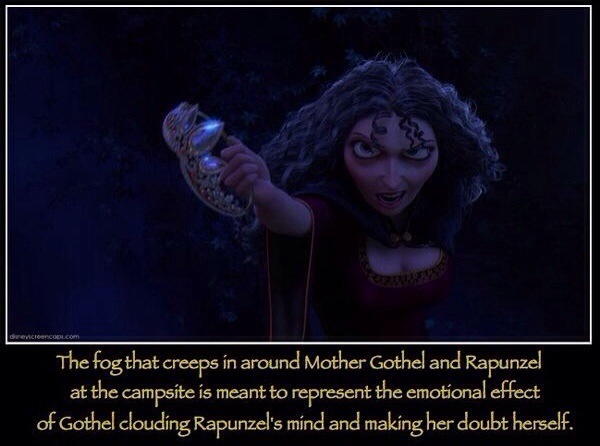
So the world’s really not the dark, scary place Mother Gothel said it was. With every singing of Mother Gothel’s song, the words become drained of their face-meaning. By the last time she sings it, you want to scream with Rapunzel: “Mother doesn’t know best, you shouldn’t listen to your mother, the world isn’t a scary place, it’s not more than you can handle. She’s just proved everything you said wrong.”
And if you’re surprised by this rhetorical device of turning simple words on their head, you shouldn’t be. It’s a trick as least as old as the Roman Empire and according to Shakespeare, Mark Antony started a national revolt with it that would change the face of the known world and history ever after.
In Shakespeare’s play “Julius Caesar”, Brutus and Cassius watch with growing alarm as the roman governor Julius, their former friend, pulls to himself more and more power, turning the great Roman Republic into the Roman Empire and with heavy hearts take matters into their own hands, assassinating the dictator and putting a stop, so they thought, to his power-mongering. But Mark Antony, chief advisor to the late emperor, begs tearful leave of Brutus to be allowed to give a funeral speech in honor of the dead Caesar. Brutus, a tender and compassionate man by nature, allows Mark Antony to give this speech on the agreed condition that he would not speak against him and incite any uprising of the people. Brutus, in the naïveté that will be his death, trusts Mark Antony and leaves the stage.
“Friends, Romans and Countrymen, lend me your ears.” He begins.
“The noble Brutus
Hath told you Caesar was ambitious:
If it were so, it was a grievous fault,
And grievously hath Caesar answer’d it.
Here, under leave of Brutus and the rest–
For Brutus is an honourable man;
So are they all, all honourable men–
Come I to speak in Caesar’s funeral.”
Throughout Mark Antony’s emotional speech he speaks of the life his friend Caesar led, of the great things he did and of his great reluctance to assume power but always qualifies the good things he says of Caesar with the phrase, “but Brutus is an honorable man” lest his praise of Caesar appear to be criticism of Brutus.
“He was my friend, faithful and just to me:
But Brutus says he was ambitious;
And Brutus is an honourable man.”“When that the poor have cried, Caesar hath wept:
Ambition should be made of sterner stuff:
Yet Brutus says he was ambitious;
And Brutus is an honourable man.”“I thrice presented him a kingly crown,
Which he did thrice refuse: was this ambition?
Yet Brutus says he was ambitious;
And, sure, he is an honourable man.
I speak not to disprove what Brutus spoke,
But here I am to speak what I do know.
You all did love him once, not without cause…”“It is not meet you know how Caesar loved you.
You are not wood, you are not stones, but men;
And, being men, bearing the will of Caesar,
It will inflame you, it will make you mad:
‘Tis good you know not that you are his heirs;
For, if you should, O, what would come of it!”
“Through this [Caesar’s mantle] the well-beloved Brutus stabb’d;
And as he pluck’d his cursed steel away,
Mark how the blood of Caesar follow’d it,
As rushing out of doors, to be resolved
If Brutus so unkindly knock’d, or no;
For Brutus, as you know, was Caesar’s angel…”“Good friends, sweet friends, let me not stir you up
To such a sudden flood of mutiny.
They that have done this deed are honourable:
What private griefs they have, alas, I know not,
That made them do it: they are wise and honourable,
And will, no doubt, with reasons answer you.”“…he hath left you all his walks,
His private arbours and new-planted orchards,
On this side Tiber; he hath left them you,
And to your heirs for ever, common pleasures,
To walk abroad, and recreate yourselves.
Here was a Caesar! when comes such another?”
“Caesar would have given you everything”…and yet “Brutus was an honorable man”, right?
It is no surprise that Mark Antony’s funeral oration ends in the crowd turning into a blood thirsty mob bent on taking vengeance on Brutus and his men. Because of his constant contrast of the goodness of Caesar with the brutality of Brutus and his men, the phrase “but Brutus is an honorable man” is regarded first with doubt, then suspicion, then outright denial and hatred.
His persuasive non-persuasive speech is masterfully crafted and successful in a horribly twisted, wicked way.
The whole movie of Tangled plays out like Mark Antony’s speech–Rapunzel’s positive experiences in the “real world” serving as the contrast to the negative words of “Mother Knows Best”, ultimately undermining Mother Gothel’s song.
If the plot of Tangled was recast as a speech like Mark Antony’s it might sound like this:
“The floating lanterns shine, they shine for me,
yet Mother Gothel forbids my sight of them.
But Mother knows best.Mother Gothel says the world is cruel,
harsh, dangerous, unfit for my exploration.
The world I find is beautiful and kind,
bright with dearest dreams fulfilled.
But Mother knows best.Mother Gothel says the world is full of men with pointed teeth,
strangers, preying on charming naive girls.
The Gaul thugs for all their gruffness,
cherish in tender hearts, the purest of dreams.
Flynn Rider though a thief, has a heart of gold,
he seeks my good not my harm.
But, to be sure, Mother knows best?”
Ultimately Rapunzul is not rebelling against a person or even authority in general, she’s rebelling against a worldview. She has thrown out one portrait of reality for her own idealistic, romanticized version. It’s rebellion against the authority of God’s Word explaining God’s World.
Flynn Ryder admittedly, is one of the most interesting and endearing of all the Disney princes. He has a good story arc–he starts out as a thief and not just a thief but the worst kind of thief: a thief who double crosses his own band to keep all the loot for himself, then gradually progresses to a picture of loving self-sacrifice.
Flynn was the first to treat Rapunzel as a person instead of an object as Mother Gothel did, always brushing her hair away from her face when he has the chance instead of flinging it in her face as Mother Gothel did. As Flynn’s love for Rapunzel grows his greed and selfishness fades to the point that when he is faced with the choice of living but enslaving Rapunzel once again and freeing Rapunzel but giving up his life, he chooses to die for her freedom, his love for her being the seed that leads to his own “resurrection”.
The scene does resonate with me, rousing sentimental tears and stirring me to ponder anew the beauty of sacrificial love but deeper reflection reveals Fynn/Eugene’s transformation to not really be a transformation. There is no appeal to conscience, it’s just pulling out the gold that was in his heart all along that only needed somebody like Rapunzel to see and draw out. He was not inherently a bad guy.
Think about it. A crook among crooks stumbles upon a beautiful, trusting girl. They set out on a journey together. In the woods. All alone. Sorry folks, that has bad ending written all over it. But because we’re turning evil upside down and backwards, the film maintains it’s PG-rating and Flynn is a good guy–a little misguided–but a good guy.
Tangled raises red flags and sets off my warning sirens like no other Disney Princess movie…Like no other Disney movie…ok, like no other children’s movie.
And again, its not because of a single ethical decision to rebel against an admittedly though unknowingly illegitimate authority. It’s because it teaches kids that the world is inherently a good, innocent place filled with good, innocent people. It’s rebellion against the authority of God’s Word explaining God’s World.
What of the world’s fall in Adam? What of the darkness lurking in every man’s soul? What of the evil in this world that even a child at the grave of his beloved dog knows deep down in his gut? Such a film is setting up children (and adults!) for disappointment, if not exploitation. Parents would be wise to continue to guard against such dangerous ideas as they have for thousands of years, exposing children to them only when they are ready to discuss and discern them, not sending them out into a bloody battle before they have the maturity to handle the conflicting emotions of war.
Dangerous ideas are dangerous only to the unarmed and unaware. They are dangerous to the Rapunzels locked away in a tower, told not to cast a wayward eye outdoors, endowed with a faith unstable, untested and not their own–and they are dangerous to the Rapunzels suddenly thrust outdoors and told to figure out the world on their own, their faith unknown, questionable and impressionable. Both postures are equally disastrous and often flow one from the other.
In the original, classic, Rapunzel tale, Mother Gothel is a powerful picture of sin and what it means to be held captive by sin. Like most individuals in slavery, Rapunzel doesn’t desire to leave the tower, the only home she knows. She is afraid to leave, she is comfortable in her slavery. Then a brave prince finds her and with great effort persuades her that she is enslaved and that he will set her free and that this freedom is something infinitely invaluable though she cannot even comprehend it.
But this freedom is not without it’s cost, when the witch finds out about the Prince’s plan of rescue she hatches a plan of her own which ends in his falling out of the tower into the briar thicket where his eyes are scratched blind. He wanders into a wilderness and it is there he finds Rapunzel again, her freedom purchased at the cost of his eyes whose sight is only then restored.
These are the themes I see lurking in the original story of “Rapunzel”. Though I think it would need some reworking to bring these out properly as Grimm’s version focuses primarily on the prince’s enrapturement with Rapunzel and his need for her rather than her slavery and need for rescue.
Stories are vitally important. They reveal our values, they speak to our consciousnesses directly, moving in us and shaping our affections and perceptions in ways we cannot fully describe or even understand. They picture doctrine rather than explain it, portray worldview rather than articulate it, painting our very souls onto the silver screen.
There is great beauty in this
but also great evil.
Blessings saints!
Photocredits: Mark Antony pictures are from the 1953 film, “Julius Caesar”,
fan art of Rapunzel looking out of tower with floating lanterns taken from fan pop.com
Martyn Lloyd-Jones Quote is from Challies.com
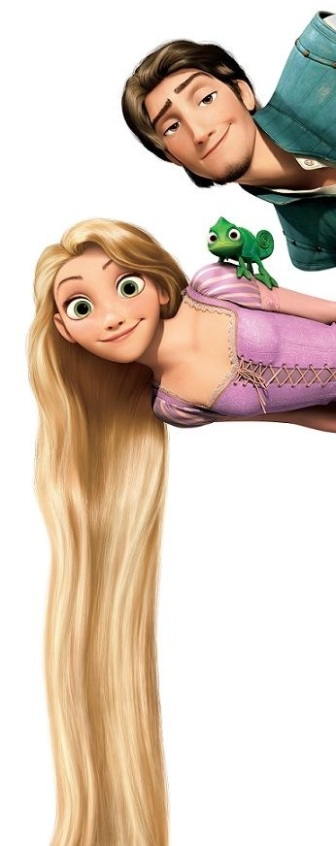
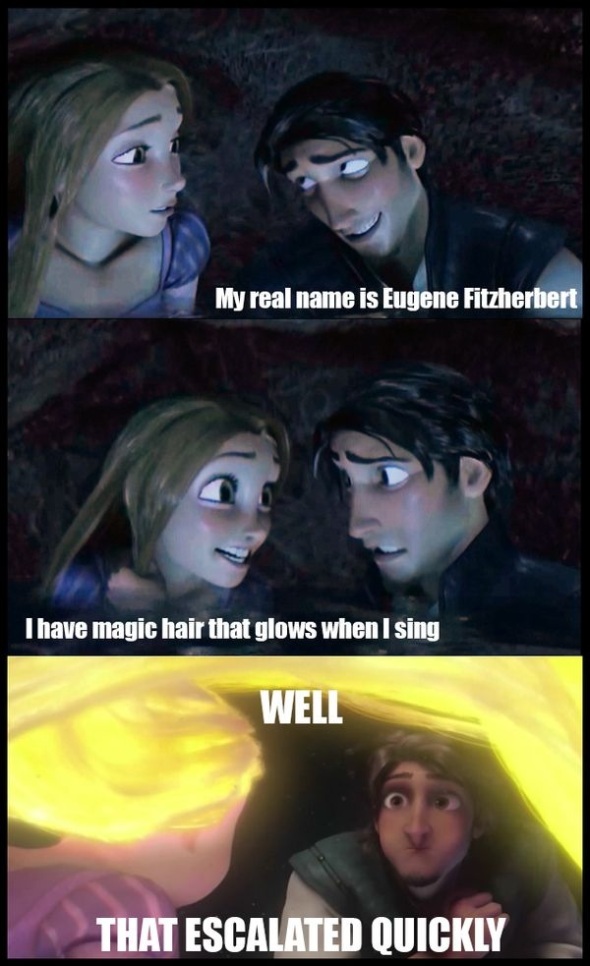
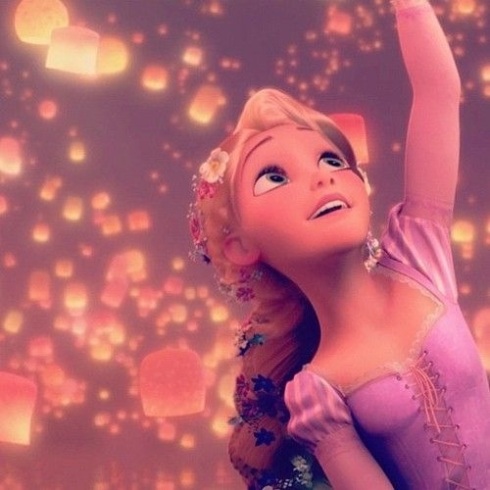
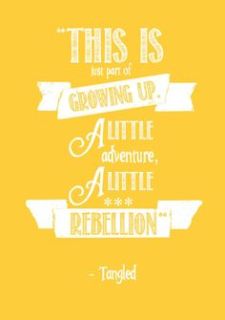
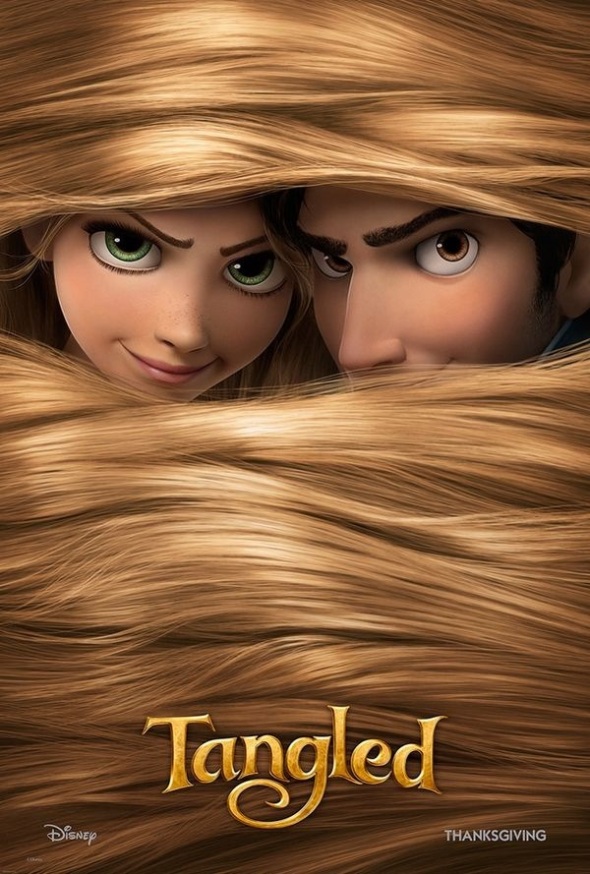
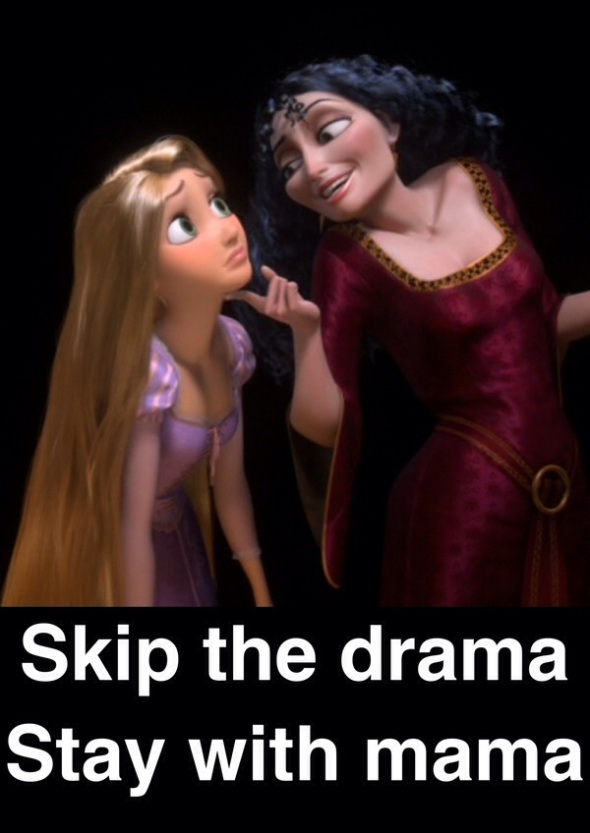
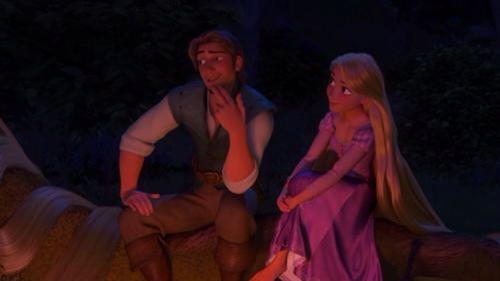
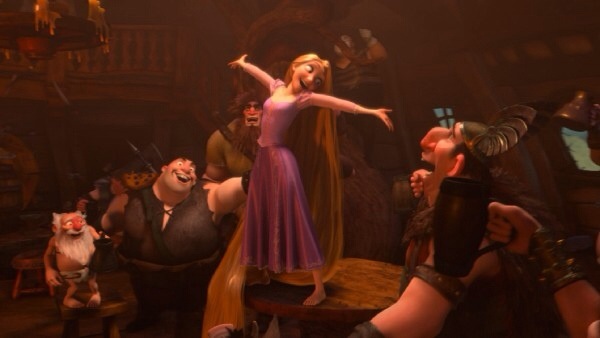
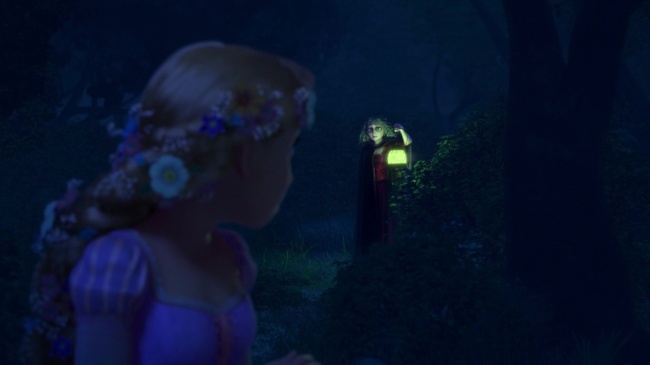
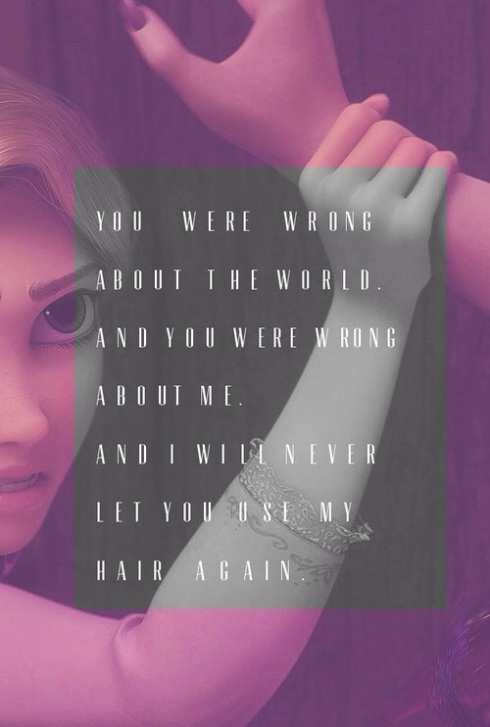
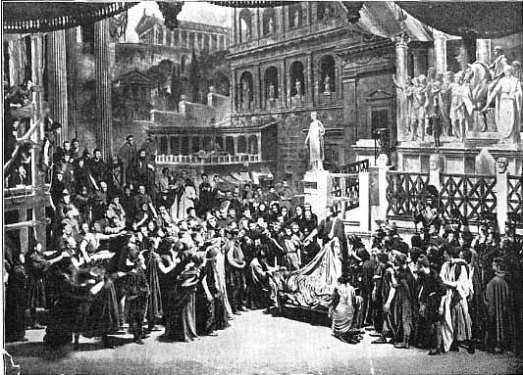
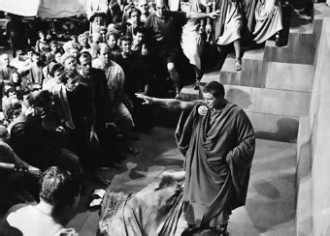
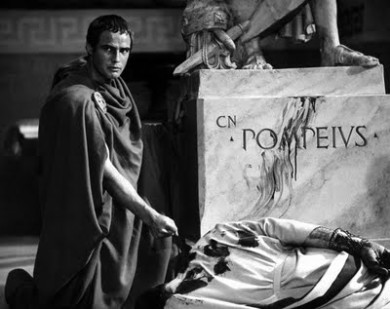
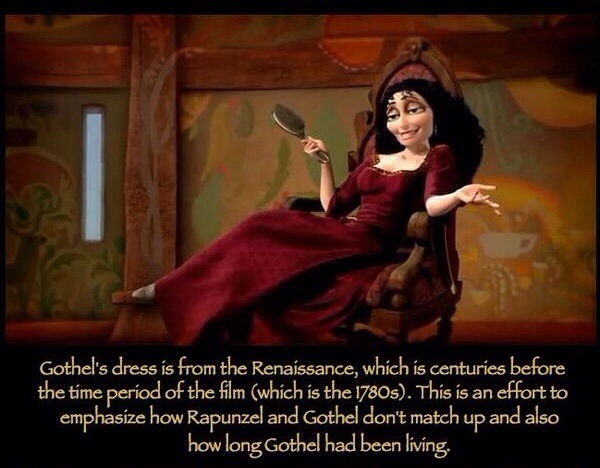
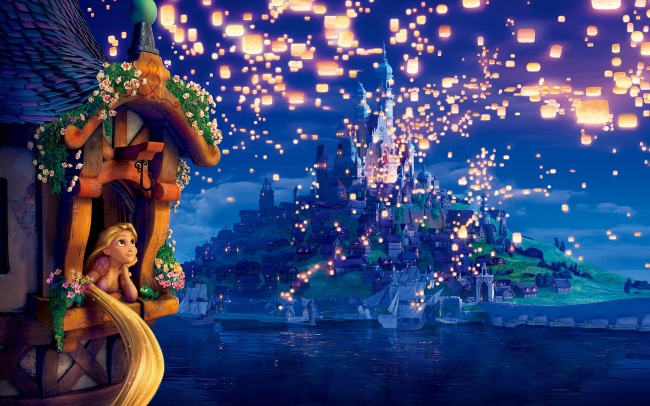
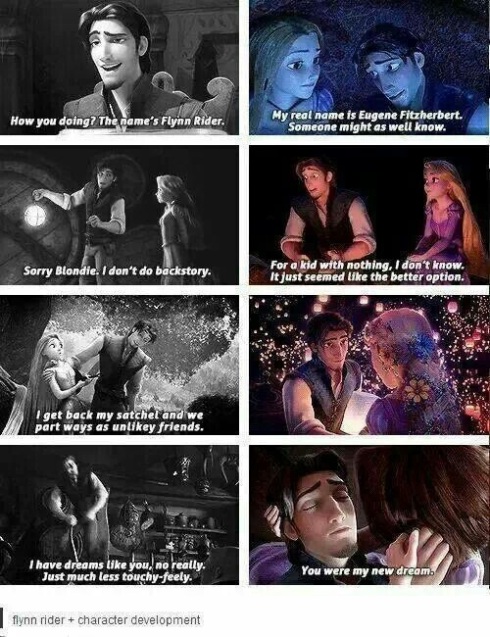
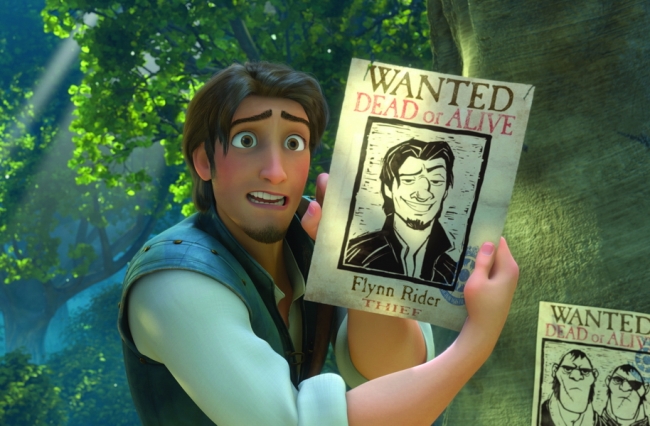
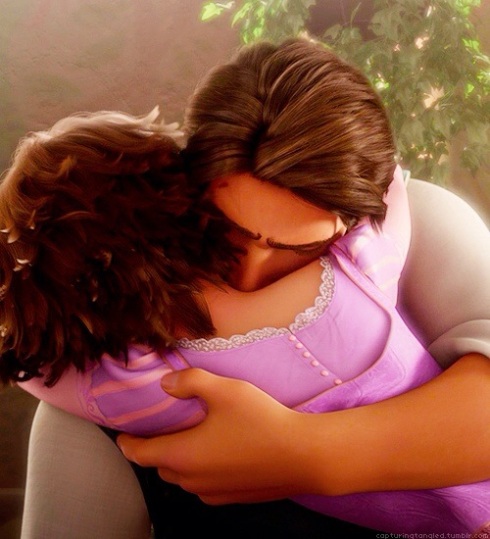
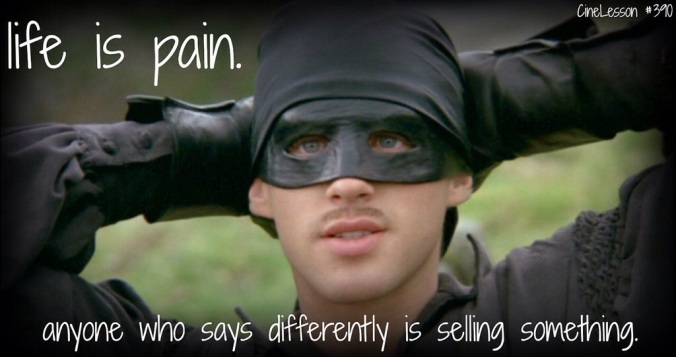
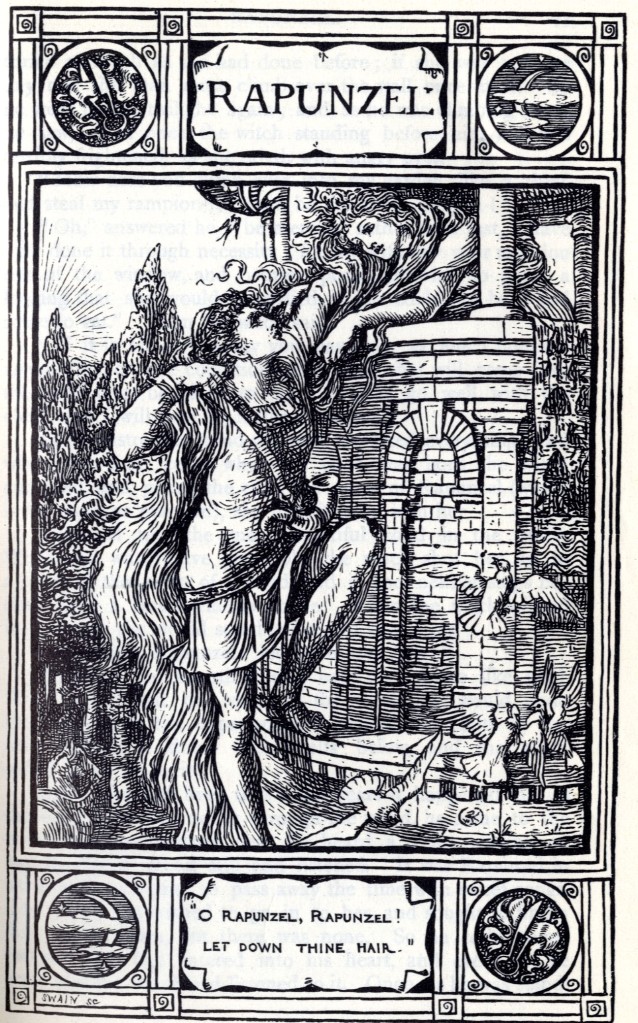

While I did enjoy this movie, I think you make some very valid points. Thank you for seeing past the charm. The original fairytales are always better than the Disney version. 🙂
LikeLike
Thank you Abby! It’s good to hear my post didn’t come across as tedious and an over-reaction, haha. 😉
LikeLike
It did not come off as either. It can be hard to sort through when what you’re writing is over-reaction and when it’s not. I don’t know just yet how to tell the difference. Sorry I’m not much help there. I do think, maybe now that I have nieces and nephews that most of the Disney cartoons have major issues. And yet, having grown up watching them, I have a soft spot in my heart for them. I think a wise parent uses them to point out and instruct.
I also find it interesting how most fairy tales were written to teach of the dangers of the world, sin, salvation and such, and this remake does exactly the opposite. I did like Flynn’s death at the end though. I thought that was very well done.
LikeLiked by 1 person
Great thoughts! Thanks for the balanced and perceptive look at Tangled–and a great explanation of rhetorical technique too!
LikeLiked by 1 person
Pingback: Six Month Anniversary | Living In Heavens shadow
Pingback: 2017 In Review | Living In Heaven's Shadow